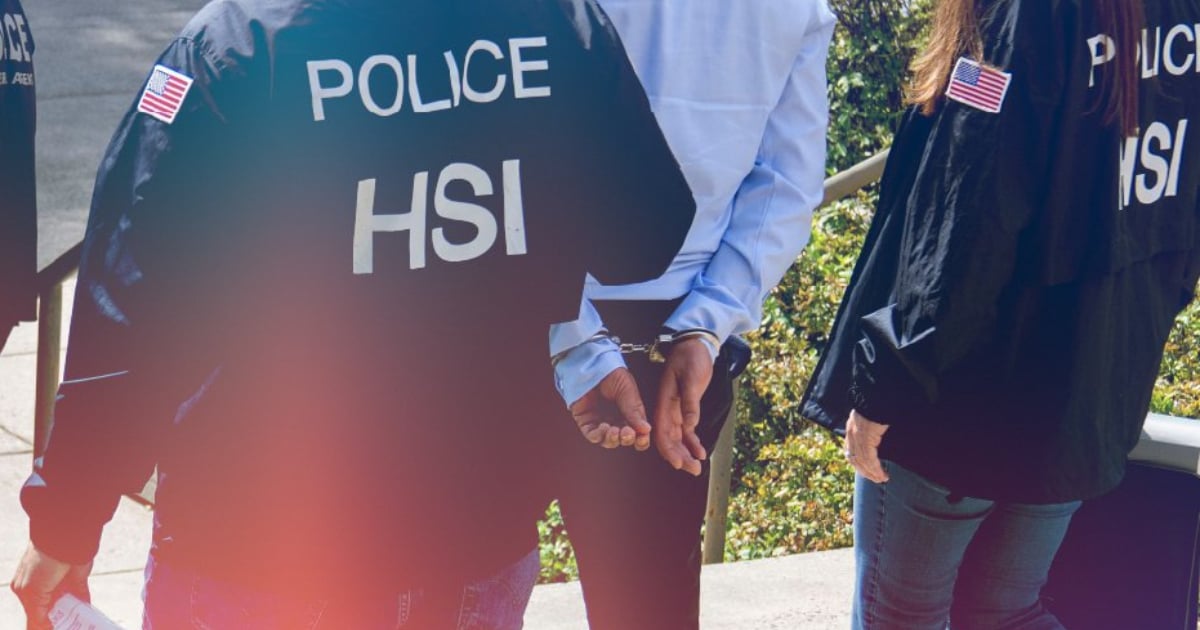A Cuban national was taken into custody by the United States Citizenship and Immigration Services (USCIS) in Kendall after he visited their office to process a permanent residency application. During a routine background check, authorities discovered that the man had an outstanding final deportation order dating back to 1995. USCIS confirmed the arrest through their official account on X, stating that the Cuban was detained in collaboration with Immigration and Customs Enforcement (ICE). "We are committed to making the United States a safe place once again," they asserted.
This individual's arrest, whose identity remains undisclosed, highlights the larger issue of increasing tension surrounding the deportation of undocumented immigrants in the United States. Immigration enforcement has intensified efforts to locate individuals with pending deportation orders, including those who show up to apply for immigration benefits. Another Cuban with a deportation order from 2012 and a criminal background was apprehended this week after visiting the USCIS office in Orlando. He was detained by ICE agents and the Florida Highway Patrol (FHP).
USCIS revealed that this migrant entered the country illegally in 2004 and was convicted in 2008, although the specific charges were not disclosed. "He has been here illegally all this time," the report emphasized.
The Growing Challenge of Cubans with Deportation Orders
According to internal ICE data, over 42,000 Cubans have active deportation orders in the United States. However, the Cuban government has refused to accept their return. These statistics place Cuba as the fourth highest nationality with pending deportation orders, following Mexico, Guatemala, and Honduras. The Cuban regime's refusal to take back its deported citizens creates complications for U.S. immigration operations. In May, the U.S. government sent two Cuban nationals convicted of serious crimes to South Sudan after Havana refused to accept them.
A Warning for Immigrants with Legal Issues
This case also serves as a reminder from USCIS to immigrants: those with outstanding arrest warrants who visit immigration offices for legal processes will be detained. USCIS emphasized in their statement that "an arrest warrant is a serious matter," and they highlighted that authorities will collaborate with local and federal agencies to identify and arrest those not complying with immigration laws.
Increased Anxiety Among Immigrant Communities
U.S. immigration policy has sparked growing concern among immigrants, particularly those in irregular situations. As authorities intensify law enforcement, individuals seeking to regularize their status face the fear of being detained or deported, even when attempting to adhere to legal procedures. With over 1.4 million immigrants with pending cases in immigration courts, the government has made it clear that it will continue to enforce its immigration policies firmly, which includes detaining those with outstanding deportation orders.
The situation becomes even more complicated with the refusal of certain countries to accept back their deported citizens, as seen in the case of Cuba.
Understanding U.S. Deportation Challenges with Cuba
Why was the Cuban individual arrested at the USCIS office?
The Cuban national was arrested because during a background check, it was discovered that he had an outstanding deportation order from 1995.
How many Cubans have active deportation orders in the U.S.?
According to ICE data, over 42,000 Cubans currently have active deportation orders in the United States.
What is the challenge with deporting Cubans back to Cuba?
The Cuban government has refused to accept deported citizens back, complicating U.S. immigration operations.
